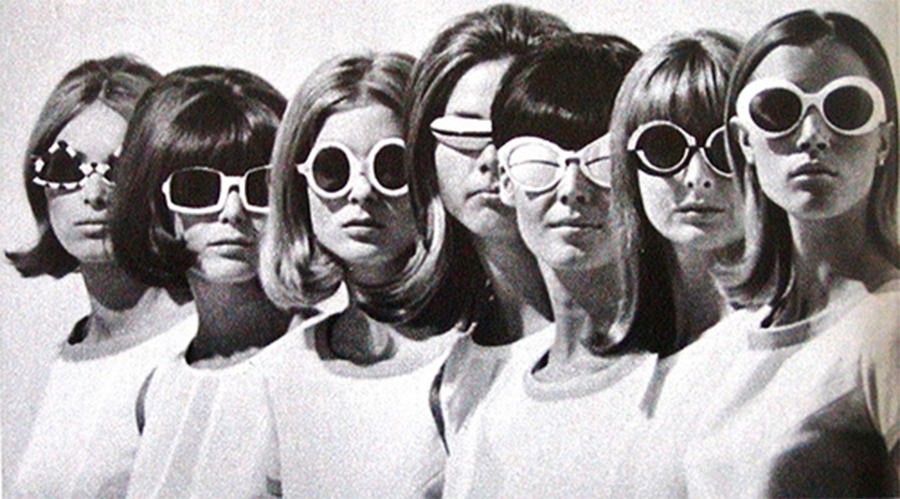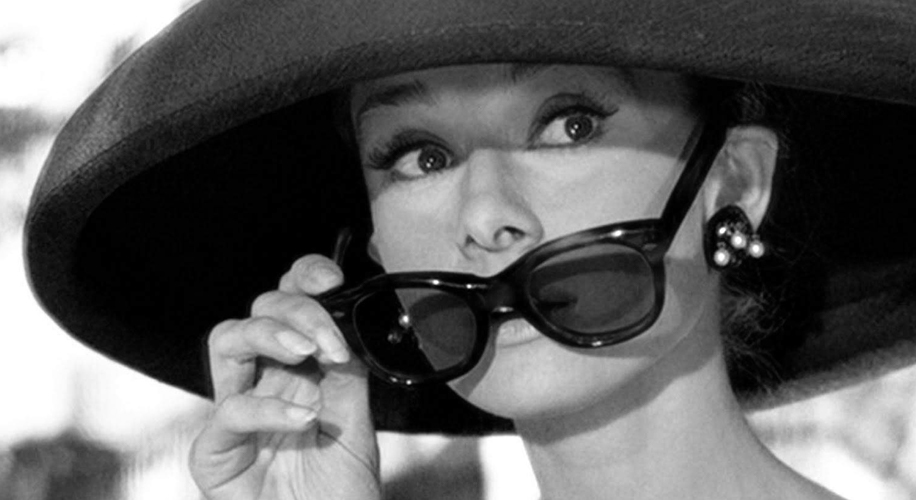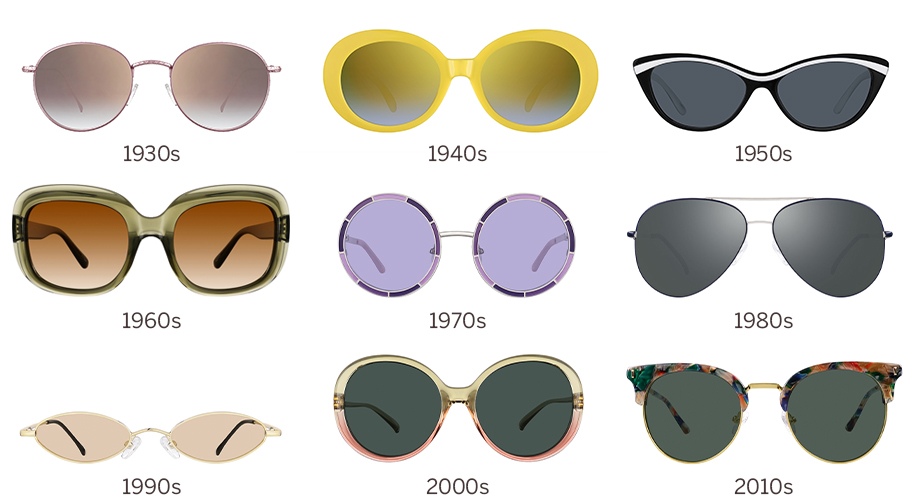The History of Sunglasses: From Function to Fashion
- BY Zenni Optical
- IN Fashion

Ahhh, sunglasses… a summertime wardrobe favorite. Today, more than ever, it’s easy to show your personality while protecting your eyes with the perfect pair of shades. Yet sunglasses were born out of function, not fashion. Read on to learn about the first pair of sunglasses (dating in prehistoric times!) and how they’ve evolved to the coveted accessory everyone loves today.
The Origin Of Sunglasses
The first version of sunglasses originates all the way back to prehistoric times. The Inuit tribe pierced slits into flattened pieces of ivory and fitted them to their eyes to block the rays of sun that reflected on ice and snow.
Another form of sunglasses made out of lenses that were flat panes of smoky quartz appeared in ancient China during the early 12th century. In addition to protecting eyes from glare, documents describe judges in Chinese courts wearing these crystal sunglasses to hide their facial expressions when they interrogated witnesses.
In the mid-1700s, English optician James Ayscough began experimenting with using tinted lenses to treat vision problems. Often credited with being a sunglasses pioneer, he believed that blue or green-tinted glass could help correct specific vision impairments (learn more about /c/how-to#howto-see-all-tints”>tinted lenses).

Sunglasses In the 20th Century
It wasn’t until the mid 20th century when sunglasses really gained popularity as a fashion accessory. In 1929, Sam Foster introduced affordable mass-produced sunglasses to America. He first started selling his sunglasses to help to protect beachgoers’ eyes from the sun in Atlantic City under the name Foster Grant. Around this same time, actresses started to wear large sunglasses to hide their faces and cover their red eyes that resulted from the powerful arc lamps used for low speed film stocks.
During World War II, Bausch & Lomb developed aviator-style sunglasses for the Army Air Corp that reduced high-altitude glare. A few years later, Edwin H. Land began using his patented Polaroid filter to make polarized sunglasses to further reduce glare and the risk of eye damage from UV light. Today, sunglasses with UV protection have become an industry standard, with a wide variety of tints available. Learn more how you can customize your sunglasses at Zenni.

Sunglasses Trends Through The Decades
1920s: Sam Foster begins selling the first mass-produced sunglasses in Atlantic City.
1930s: Simple, round sunglasses and aviator-style sunglasses become popularized by American movie stars.
1940s: Thick, colorful frames, often resembling flowers, are a must.
1950s: Marilyn Monroe and Audrey Hepburn make cat-eye sunglasses the most popular style.
1960s: Large square frames in a rainbow of colors are the fad for both men and women.
1970s: Everyone is wearing oversized round sunglasses with lightly tinted lenses.
1980s: The movie “Top Gun” and Tom Cruise make aviators a global trend.
1990s: Celebrities start wearing small frames and everyone follows.
2000s: Giant bug eye shades replace micro-frames.
2010s: Retro styles, like cat-eyes and aviators, become popular again.
Feeling inspired to update your sunglasses? /affordable-sunglasses-trends”>Shop season’s most popular sunglasses trends, ranging from /b/premium-sunglasses-women”>cat-eyes to /b/premium-sunglasses-women”>geometric and even /b/all-men-glasses/_/N-1341992444″>clip-ons!